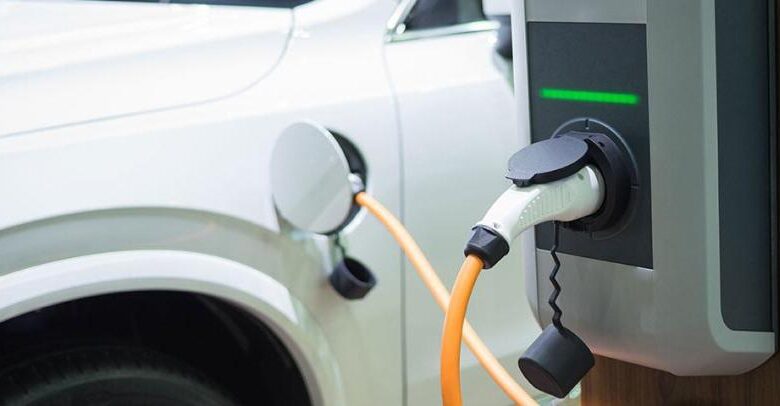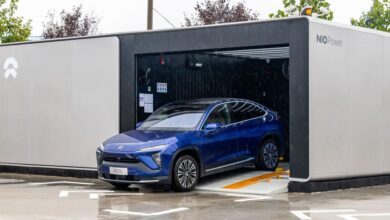Electric Vehicle Battery Charger Market Charges Ahead,

The Global Electric Vehicle Battery Charger Market is experiencing an electrifying surge, driven by the rapidly growing adoption of electric vehicles (EVs), the increasing focus on sustainable transportation solutions, and the development of advanced charging technologies. According to a comprehensive market research report, the electric vehicle battery charger market, valued at $9.73 billion in 2022, is projected to reach a staggering $49.02 billion by 2030, exhibiting an impressive compound annual growth rate (CAGR) of 22.4% during the forecast period of 2023-2030.
This substantial growth trajectory is fueled by a multitude of factors, including stringent emission regulations, rising concerns over environmental sustainability, and the increasing demand for efficient and convenient charging solutions to support the growing EV fleet.
Get Free Sample Report @ https://www.snsinsider.com/sample-request/1803
Accelerating the Transition to Electric Mobility
As the world embraces the transition towards sustainable transportation, the electric vehicle battery charger market has emerged as a critical enabler of this paradigm shift. Reliable and efficient charging solutions are essential for addressing the range anxiety concerns associated with electric vehicles and promoting their widespread adoption.
By providing users with a convenient and accessible charging infrastructure, the electric vehicle battery charger market is playing a pivotal role in facilitating the widespread acceptance of EVs, contributing to a cleaner and more sustainable future.
Advancing Charging Technologies and Infrastructure
The electric vehicle battery charger market is witnessing rapid advancements in charging technologies, with a focus on increasing charging speeds, improving efficiency, and enhancing user convenience. Key players in the industry are actively investing in the development of cutting-edge charging solutions, such as ultra-fast charging stations and wireless charging systems.
Additionally, the deployment of robust charging infrastructure, including public charging stations and residential charging solutions, is gaining momentum worldwide. Governments and private entities are collaborating to establish comprehensive charging networks, ensuring that EV owners have access to reliable and convenient charging options, further driving the market’s growth.
Stringent Emission Regulations and Sustainability Initiatives
Governments and regulatory bodies around the world have implemented stringent emission regulations and policies aimed at reducing greenhouse gas emissions and promoting sustainable transportation alternatives. These regulations have become a driving force behind the growth of the electric vehicle battery charger market, as automakers and consumers alike seek to embrace electric mobility and reduce their carbon footprint.
Furthermore, the increasing emphasis on corporate sustainability initiatives and the rising awareness among consumers about the environmental impact of traditional internal combustion engine vehicles have fueled the demand for electric vehicles and, consequently, the associated charging infrastructure.
Market Segmentation and Key Players
The electric vehicle battery charger market can be segmented based on various factors, including charging level, electric vehicle type, and application.
By charging level, the market is divided into Level 1, Level 2, and Level 3 (or DC fast charging), catering to different charging requirements and power capacities.
In terms of electric vehicle type, the market encompasses battery electric vehicles (BEVs), hybrid electric vehicles (HEVs), and plug-in hybrid electric vehicles (PHEVs), reflecting the diverse range of electric and electrified vehicle technologies.
The application segment covers private and public charging solutions, addressing the charging needs of both residential and commercial users.
Key players in the electric vehicle battery charger market include industry giants such as ABB, Schneider Electric, Siemens, Eaton, and Leviton Manufacturing Co., Inc. These companies are actively investing in research and development, forming strategic partnerships, and leveraging cutting-edge technologies to gain a competitive edge in this rapidly evolving market.
Regional Insights: Asia-Pacific Surges, North America and Europe Lead
The Asia-Pacific region is expected to witness the highest growth rate during the forecast period, fueled by the rapid urbanization, increasing disposable incomes, and the growing adoption of electric vehicles in countries like China, Japan, and South Korea.
However, North America and Europe currently dominate the global electric vehicle battery charger market, driven by factors such as well-established automotive manufacturing hubs, stringent emission regulations, and the early adoption of electric mobility solutions.
Overcoming Challenges and Embracing Innovation
While the electric vehicle battery charger market presents immense growth opportunities, it is not without its challenges. The need for standardized charging protocols, the management of grid integration and load balancing, and the development of cost-effective charging solutions are among the key challenges that must be addressed.
To overcome these challenges, industry stakeholders are actively collaborating to establish universal charging standards, exploring innovative energy storage and load management solutions, and investing in research to develop affordable and efficient charging technologies.
Additionally, the integration of smart grid technologies, renewable energy sources, and advanced communication protocols will play a vital role in optimizing the charging infrastructure and enabling a seamless transition to electric mobility.
The Future of Electric Vehicle Battery Chargers: Smart, Connected, and Sustainable
As the electric vehicle battery charger market continues to evolve, several key trends are expected to shape its future trajectory. The development of smart and connected charging solutions, leveraging advanced communication technologies and the Internet of Things (IoT), will enable real-time monitoring, remote control, and seamless integration with energy management systems.
Furthermore, the adoption of Vehicle-to-Grid (V2G) and Vehicle-to-Home (V2H) technologies will allow electric vehicles to serve as distributed energy storage systems, providing grid stabilization services and enhancing the overall resilience of the energy infrastructure.
Sustainability will also play a crucial role in the future of electric vehicle battery chargers, with a growing emphasis on developing charging solutions powered by renewable energy sources, promoting energy efficiency, and minimizing the environmental impact of charging infrastructure.
In conclusion, the electric vehicle battery charger market presents a compelling growth opportunity, driven by the rapidly growing adoption of electric vehicles, the increasing focus on sustainable transportation solutions, and the development of advanced charging technologies. As the market continues to expand, key players are poised to capitalize on emerging trends, leveraging technological advancements, and introducing innovative solutions that cater to the evolving needs of the electric mobility revolution worldwide.
Read This Report @ https://www.snsinsider.com/reports/electric-vehicle-battery-charger-market-1803
Contact Us:
Akash Anand – Head of Business Development Strategy
Email: info@snsinsider.com
Phone: +1-415-230-0044 (US) | +91-7798602273 (IND)
Website: https://www.snsinsider.com
About US:
SNS Insider has been a leader in data and analytics globally with its authentic consumer and market insights. The trust of our clients and business partners has always been at the center of who we are as a company. We are a business that leads the industry in innovation, and to support the success of our clients, our highly skilled engineers, consultants, and data scientists have consistently pushed the limits of the industry with innovative methodology and measuring technologies.
We assist our clients to anticipate industrial, economic, and consumer trends to drive disruptive change by fusing global experience with local information from experts throughout the world. We bring context to strategic and tactical data by bridging approaches based on data science and field research, assisting you in addressing your most pressing problems and spotting possibilities.
This release was published on openPR.



